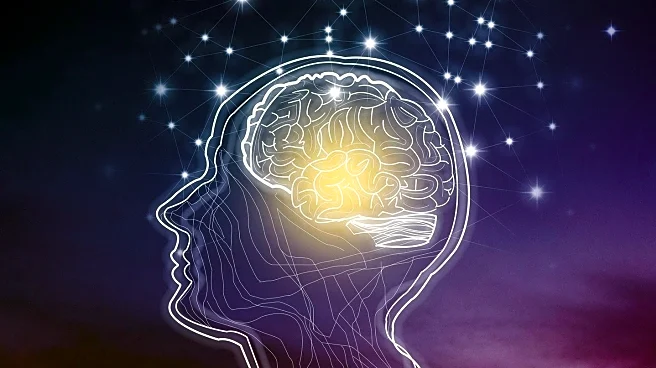What's Happening?
Recent studies have highlighted the significant impact of circadian rhythm misalignment on mental health, particularly after midnight. Researchers have found that nocturnal wakefulness can lead to increased
negative emotions, dangerous ideas, and reduced inhibitions, potentially contributing to suicide risk. The 'Mind After Midnight' hypothesis suggests that the human mind functions differently at night, with heightened attention to negative stimuli and altered reward processing. This state of consciousness, exacerbated by sleep loss, poses risks for individuals awake during these hours, including shift workers like pilots and doctors. The study calls for further investigation into these factors to protect those most at risk from nighttime wakefulness.
Why It's Important?
Understanding the effects of circadian rhythm misalignment is crucial for addressing mental health issues and suicide prevention. The findings suggest that individuals awake at night, such as shift workers, may be at higher risk due to altered brain function. This research could influence public health policies and workplace regulations, aiming to mitigate risks associated with nocturnal wakefulness. By identifying the factors contributing to these risks, stakeholders can develop strategies to support mental health and safety for those affected, potentially reducing suicide rates and improving overall well-being.
What's Next?
Further research is needed to explore how sleep deprivation and circadian timing impact reward processing and decision-making. Studies could focus on shift workers and other groups with irregular sleep patterns to better understand their coping mechanisms and develop targeted interventions. Policymakers and health organizations may consider implementing measures to support individuals at risk, such as promoting healthy sleep habits and providing mental health resources. The findings could also lead to changes in workplace practices, ensuring safer environments for those working night shifts.
Beyond the Headlines
The implications of circadian rhythm misalignment extend beyond immediate mental health risks. Long-term effects could include increased susceptibility to chronic conditions and reduced quality of life. Ethical considerations arise in balancing economic demands with employee well-being, particularly in industries reliant on night shifts. Culturally, the research challenges societal norms around productivity and sleep, potentially prompting shifts in attitudes towards work-life balance and mental health awareness.










